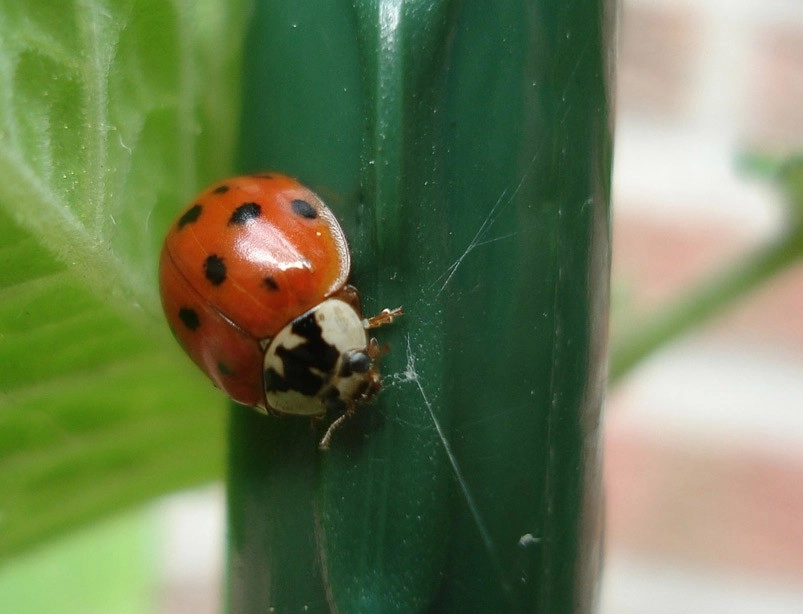Protecting Your Vegetable Garden With Eco-Friendly Pest Control

Vegetable gardens are vibrant ecosystems teeming with life, but as any gardener knows, pests can quickly become unwelcome guests. Your cucumbers, peppers, and cherry tomatoes taste just as good to insects as they do to you. Many pests are happy to turn your produce into their property by nibbling away at stems and burrowing into fruits and vegetables.
So what can we do? Let’s explore some home harden insect control methods that will help keep your vegetable patch vibrant and, most importantly, intact. In this guide, you will learn how to get rid of grubs and other pests in your vegetable garden, what plants keep bugs away from a vegetable garden, and all about the natural remedies, DIY pest control sprays, and treatments to empower yourself to combat common pests with expert help from Rove Pest Control.
Understanding Common Garden Pests and Natural Remedies
Before we dive into our eco-friendly home garden pest control solutions, let’s familiarize ourselves with the common adversaries that threaten the well-being of our vegetable gardens. Aphids, those tiny, sap-sucking insects, and caterpillars, voracious leaf-munchers, are some of the frequent culprits. We’ll cover tips on how to keep these nuisances and others like them away while, crucially, maintaining the vitality of your garden.
Neem Oil as an Insecticide
Let’s start with some of the book’s oldest natural pest defense tricks. All you need are two ingredients:
- Neem oil
- Soapy water
Neem oil, derived from the neem tree, acts as a natural insecticide, disrupting the life cycle of pests. When combined with soapy water, it creates an effective spray to apply directly to plants. This dynamic duo can be an effective first line of defense against unwanted visitors in your vegetable garden and does not require harmful chemicals.
To use neem oil for mealybugs or other garden pests, mix a teaspoon of neem oil with a few drops of mild liquid soap in a water-filled spray bottle. Apply the solution generously to infested areas for complete coverage, and be sure to pay attention to the underside of leaves where bugs like to hide. Regular application, especially after rainfall or irrigation, enhances its efficacy in getting rid of aphids and other pests.
Garlic and Chili Pepper Sprays
If you prefer a DIY approach to pest control, your kitchen might be hiding two powerful tools– garlic and chili peppers. Garlic has natural insect-repelling properties, while chili peppers’ spiciness can deter insects and mammals. Blend a few cloves of garlic and a couple of hot peppers with water, strain the mixture, and add it to a spray bottle.
Apply it to the leaves and stems of your vegetable plants, making sure to reapply after rain or heavy dew. For reapplication, wait until the newly introduced moisture has dried. To protect your entire plant, you should thoroughly apply the mixture, like the neem oil and soap.
Beneficial Insects in the Garden
Nature has its own army of allies ready to defend your vegetable garden against unwanted invaders. Beneficial insects play a pivotal role in maintaining a balanced ecosystem, and harnessing their capabilities is a cornerstone of eco-friendly pest control.
Are Lady Bugs Good or Bad?
Ladybugs, with their charming red-and-black polka-dotted shells, are not just a visual delight but also formidable predators in the garden. These friendly beetles feast on aphids, mites, and other soft-bodied pests, making them invaluable allies for your vegetable plants.
Encourage ladybug populations by planting flowers for vegetable garden flowers like marigolds, daisies, or cilantro around your garden. Providing a diverse and welcoming environment will attract these aphid hunters so they may function as a natural and effective defense mechanism for your vegetable patch.
Lacewings for Aphids

Often overlooked for their delicate appearance, lacewings are powerful overnight pest controllers. Their larvae voraciously consume aphids, caterpillars, and other small insects that threaten your crops. Bring them into your garden by incorporating dill, angelica, or cosmos, which attract and support these beneficial insects.
Parasitic Wasps Are Actually Your Friends
Parasitic wasps may sound intimidating, but these tiny wasps are harmless to humans and invaluable for your garden. They lay their eggs inside or on the bodies of harmful pests, controlling their populations naturally. Planting herbs like fennel, dill, or yarrow attracts parasitic wasps, ensuring your vegetable garden remains a thriving and pest-resistant haven.
By welcoming these beneficial insects into your garden, you create a balanced ecosystem and reduce the need for chemical interventions.
Reach Out to Rove for Garden Insect Control
These eco-friendly DIY pest control solutions can help protect your garden but could be more effective. Certain pests, especially underground ones like grubs, are much harder to remove with DIY treatments.
When pests are determined to take over the plants you work so hard to protect, Rove Pest Control will send them running. Our experienced pest control specialists bring industry-leading equipment and expertise that makes us well-equipped to tackle big and small pest problems.
Whether you need help securing your garden or removing an entire infestation from your home, we’re here to help you every step of the way. Contact us today to schedule your appointment.
